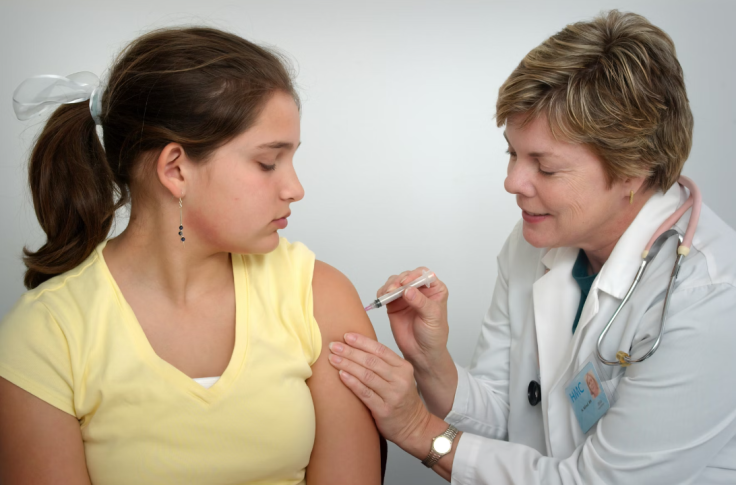Looking Forward to Your Nursing Education? Here Are 3 Graduate Nursing Degrees To Choose From
ByRegistered nurses (RNs) form the backbone of patient care, orchestrating physical exams, medication administration, and leading healthcare teams. However, a nationwide nursing shortage, exacerbated by burnout, insufficient training, and an impending wave of retirements, poses a challenge for states across the U.S. The confluence of these factors, coupled with a dwindling number of primary care physicians and an aging patient population, underscores the urgent need for nurses-particularly those with advanced degrees.

The Essential Role of Advanced Nursing Degrees
Advanced practice registered nurses (APRNs) typically pursue a Master of Science in Nursing (MSN) or a Doctor of Nursing Practice (DNP) degree, both focusing on the clinical aspects of care. The choice between MSN and DNP depends on individual career aspirations and the desire for greater responsibility, leadership, or involvement in health policy.
Beth Ann Swan, associate dean at Emory University's Nell Hodgson Woodruff School of Nursing, notes that the motivations for pursuing advanced degrees are diverse. Graduates may become faculty members, research scientists, healthcare leaders, or policy advisors. The variety of roles demonstrates the flexibility and impact of advanced nursing degrees in shaping the healthcare landscape.
Master of Science in Nursing (MSN)
At the MSN level, nurses specialize in one of four areas: nurse practitioner, nurse anesthetist, clinical nurse specialist, or certified nurse midwife. The program takes two to three years on average, with accelerated options available. MSN-prepared nurses assume greater patient care responsibilities, including prescribing medications, ordering diagnostic tests, and developing care plans.
Susan Renz, a geriatric nurse practitioner, emphasizes the advantages of being a primary care provider at the MSN level. MSN nurses work alongside physicians, playing a pivotal role in patient care. With increased responsibilities come new challenges, such as managing a demanding workload and coordinating care effectively.
The U.S. Bureau of Labor Statistics reports a median annual wage of $125,900 for nurse anesthetists, nurse midwives, and nurse practitioners in 2022-significantly higher than the $81,220 median for registered nurses.
Doctor of Nursing Practice (DNP)
For nurses seeking a more comprehensive understanding of healthcare policies and aspiring to leadership roles, the DNP offers an in-depth exploration. Danielle McCamey, a DNP at Johns Hopkins University School of Nursing, highlights the DNP's focus on disrupting healthcare systems, promoting access to care, and staying abreast of trends shaping the industry.
The popularity of DNP programs has surged, with 426 programs in 2022 and 70 more in planning, according to the American Association of Colleges of Nursing. The shift towards DNPs is evident, as organizations like the National Organization of Nurse Practitioner Faculties advocate for the transition of all entry-level NP programs to the DNP by 2025.
Alexander Menard, an acute care nurse practitioner and DNP, supports this transition, emphasizing the need for advanced knowledge, leadership, and policy understanding. The DNP's extended curriculum addresses the broader aspects influencing patient care, preparing graduates for multifaceted roles.
Choosing the Right Graduate Nursing Program
Selecting the right program is crucial, considering the significant time and financial investment. Real-world experience is vital before pursuing a master's program, according to Renz, as it provides insights into patient populations and potential career paths. Conversations with professionals in desired roles and specialties are valuable in shaping realistic expectations and career goals.
Accreditation, school reputation, ranking, and employment opportunities should guide the decision-making process. As employment of APRNs is projected to grow by 38% from 2022 to 2032, with around 29,200 annual openings, the demand for advanced nursing degrees is undeniable. With the evolving landscape of healthcare and technological innovations expanding access, McCamey encourages aspiring nurses to understand their goals, emphasizing the abundance of opportunities to make a difference in patient care and community health.
In conclusion, the pursuit of an advanced nursing degree is a promising venture for those dedicated to elevating patient care, contributing to healthcare policies, and assuming leadership roles in a dynamic and evolving industry. As the need for skilled and specialized nursing professionals continues to rise, the choice between MSN and DNP becomes a pivotal decision in shaping a fulfilling and impactful nursing career.
© 2025 University Herald, All rights reserved. Do not reproduce without permission.








